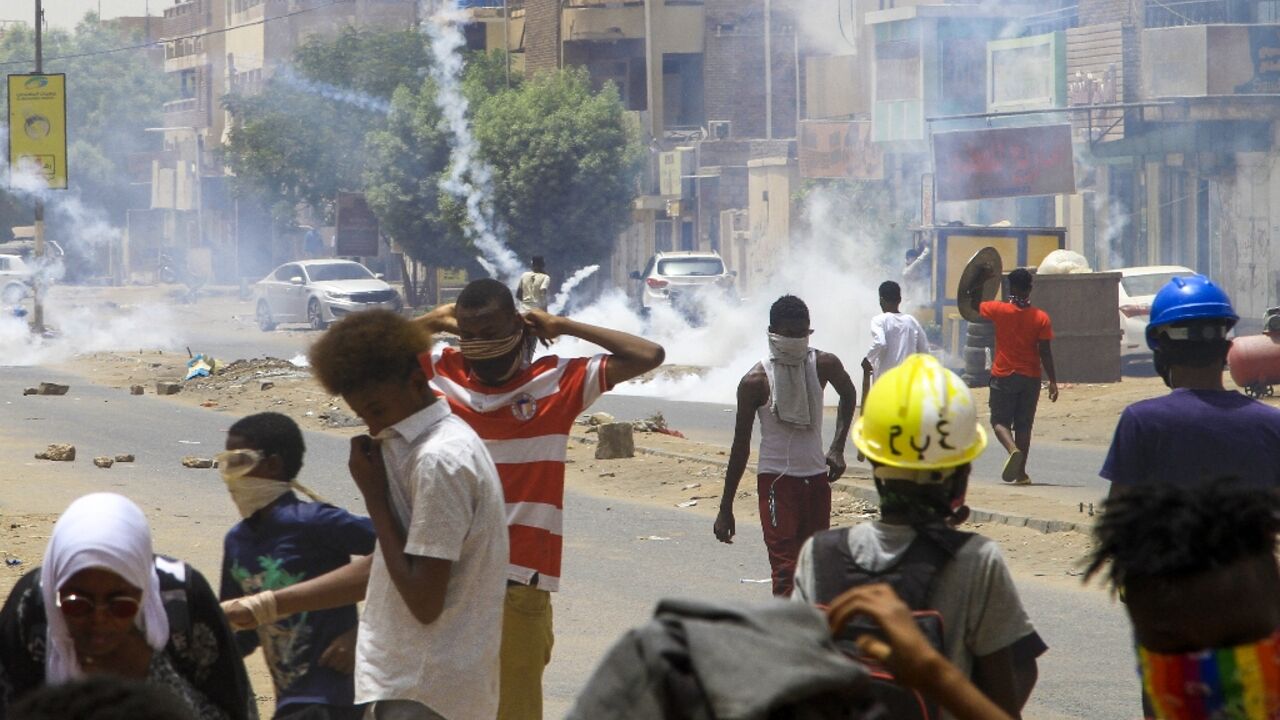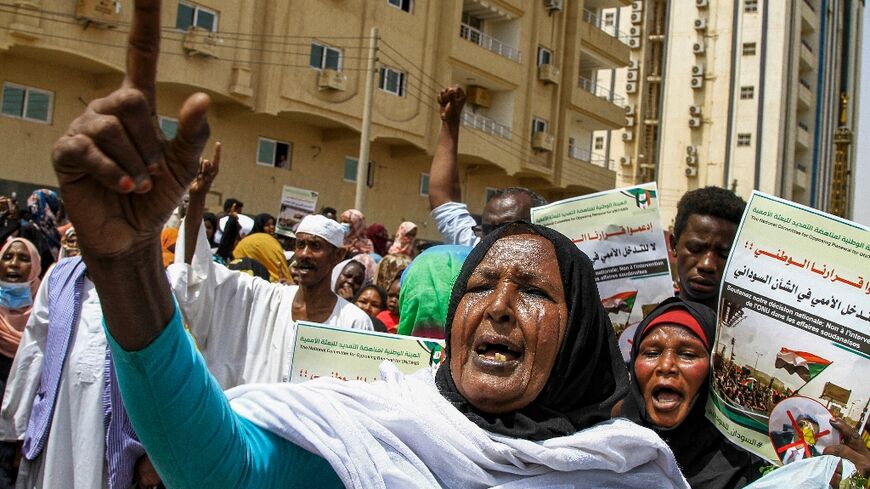Sudan anti-coup protester killed as civilian bloc reject talks

Sudanese security forces killed a protester Monday during anti-coup rallies, medics reported, as the main civilian bloc rejected UN-facilitated talks with the military aiming to resolve the protracted crisis.
The latest killing brings to 100 the death toll during the crackdown on protests against the October military coup led by army chief Abdel Fattah al-Burhan, the pro-democracy Central Committee of Sudan Doctors said.
The protester was reported to have been hit in the chest "by coup forces in Omdurman" the capital's twin city, the committee said.
The protests, the latest in months of unrest, comes as the United Nations, African Union and regional IGAD bloc push for Sudanese-led talks to solve the impasse since the military power grab in October that ousted the civilian Forces for Freedom and Change (FFC).
The FFC said it received an invitation from the UN-AU-IGAD trio for a technical meeting with the military on Wednesday, but "conveyed its apologies" and said they would not attend.
The October coup derailed a fragile transition to civilian rule that had been established following the 2019 ouster of president Omar al-Bashir.
The meeting "does not address the nature of the crisis" and any political process should work on "ending the coup and establishing a democratic civilian authority", the FFC said in a statement.
"This cannot be done by inundating the political process with parties representing the coup camp or linked to the former regime," it added.
UN spokesperson Stephane Dujarric urged factions to take part in the talks "in good faith" and to "continue to work towards establishing a conducive environment for a constructive dialogue."
Burhan also called on political blocs to "engage in the talks".
- Tear gas -
Anti-coup protests broke out in several parts of Khartoum on Monday, with crowds demanding civilian rule.
They were met by a heavy deployment of security forces, firing a barrage of tear gas canisters, witnesses said.
Since the coup, Sudan has been rocked by near-weekly protests and a violent crackdown that has killed 100 people, according to pro-democracy medics.
Last week, Burhan lifted a state of emergency in force since the coup to set the stage for "meaningful dialogue that achieves stability for the transitional period."
Military officials have agreed to launch "direct talks" between Sudanese factions.
Authorities have in recent weeks also released multiple civilian leaders and pro-democracy activists arrested since the coup.
However, the FFC on Monday said that other activists still remain in prison and the iron-fisted suppression of protests continues.
On Saturday, the UN human rights expert Adama Dieng, on his second visit to Sudan since the coup, denounced the killing of protesters and "the excessive use of force" by security forces.
On Sunday, US Assistant Secretary of State for African Affairs Molly Phee arrived in Sudan to "support the Sudanese-led process to resolve the crisis."
Sudan, one of the world's poorest countries, was already reeling from a plunging economy due to decades of international isolation and mismanagement under Bashir.
But the turmoil has intensified since the coup amid international aid cuts.
In separate unrest in eastern Sudan, crowds blocked main roads leading to Port Sudan, the country's main Red Sea trade hub, to protest a 2020 peace deal.
Protesters from Sudan's eastern Beja people say the fragile peace deal does not represent them.





